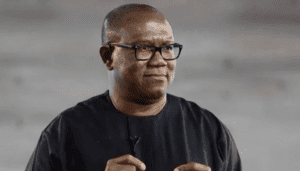
Nigeria workers’ situation beyond abnormal — Labour
By Saka Laaro,Ilorin.
Workers in the country have lamented the present socioeconomic pangs, describing the situation around a typical Nigerian worker as beyond abnormal.
Speaking at the opening ceremony of the 28th annual national Management/Industrial Relations seminar themed, “Creative and innovative strategies to manage workers expectations and reality in a challenging economy” in Ilorin on Monday, the national president of the Chemical and Non Metallic Products Senior Staff Association of Nigerian (CANMPSSAN), an affiliate of the Trade Union Congress (TUC) and Industrial Global Union, Comrade Segun David, said that, “the take home of every worker cannot take them to the company gate.”
The CANMPSSAN national president said that the group realised that the government is new, however, called on the government to do more at improving welfare of the Nigerian workers in the face of the challenging situation.
The union leader, who advised Nigerian workers on the need to strategise on how to manage expectations in the face of dwindling incomes and understand the reality on ground, said that employers are struggling to adapt with the unfavourable policies of the government, especially, the fuel subsidy removal, adding that the cost and case of doing business in the country is getting unbearable by the day.
“As at the last count, a dollar is above a thousand naira. Manufacturing industries depend solely on forex to survive, the fluidity in the forex market is yet to yield any positive result, rather things are getting worse.
“Nigeria depends on importation to survive, the high exchange rate in Nigeria, as at September, 2023 reached an 18-year high of 26.7 percent. The removal of fuel subsidy attributed also to the high inflation rate. Prices of food jumped to 30.6% high, transportation 27.2 percent, housing and utilities 22.5 percent and miscellaneous goods and services rose to 21.9 percent high respectively.”
“There are no essentials of life that have not been touched; food, housing, transport, electricity, clothing, maintenance, education, health, recreation and communications.
“Based on the analysis above, we need to strategize on how we can manage our expectations in the face of dwindling incomes and understand the reality on ground,” he said.
Also speaking, the national president of the National Union of Chemical Footwear Rubber Leather and Non-Metallic Products Employees (NUCFRLANMPE), Babatunde Olatunji, enumerated challenges facing the Nigerian workers as fuel subsidy removal, hike in electricity tariffs, high inflation that is affecting standard of living, insufficient infrastructure, epileptic power supply, multiple taxation on companies, insecurity, among others.
He also said that workers needed to be strategic in this present time, adding that, “we need to know our strength, our weakness and all available opportunities while also understanding threats that may affect our welfare. I also say that we should take our work seriously and equally explore multi-skilling strategies so as to be relevant in the era of the new world of work.
“Nigerians are lamenting over the subsidy removal which has taken a toll in the lives of Nigerians. For instance, from pepper sellers, pepper grinders to vehicle owners who no longer use their vehicles due to high cost of fuel, including the high electricity tariffs.
“All these factors affect workers and as such the government must do something about this. Looking at security issues, yet no solution in sight. So, our political leaders should think of the after effects of this to save the country from going down.”
In the words of the Assistant Inspector General (AIG) of Police in charge of Metro, Kwara state, Babatunde Dosumu, “Fuel subsidy removal is biting hard on the security situation in Nigeria. Responding to distress calls by the security agents has become a Herculean task.
“But I must emphasise that security is everybody’s business. Therefore, I urge Nigerians to always furnish security with necessary information that will assist us in securing the country.”



